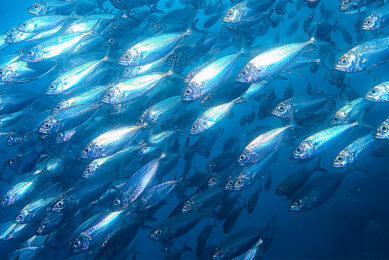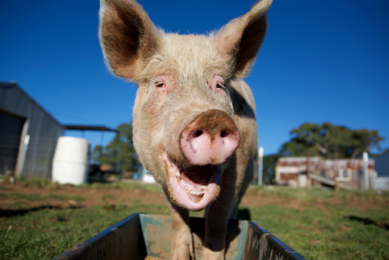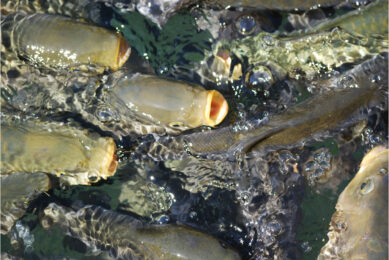Bacterial protein influences feed quality
Margareth Øverland and colleagues from the Aquaculture Protein Centre of the Norwegian University of Life Sciences in Ås looked at the effects of adding bacterial protein on dog food and salmon feed quality after different extrusion conditions.
The results demonstrate that low amounts of Bacterial protein meal (BPM) and its homogenate (HOM) influenced the technical quality of extruded diets for
dogs and salmon. The effect of BPM and HOM was different in dog food with higher
starch content compared to the salmon feed with lower starch content, and was
dependent on extrusion conditions.
Experimental set
up
BPM shows great potential as a raw ingredient in fish feed, and
it has characteristics that can make us less reliant on fish meal in the
production of feed for the aquaculture industry. The effect of BPM and
its HOM on length, expansion, density, sinking rate, fat leakage,
durability, and breaking force of extruded dog food and salmon feed exposed to
mild and moderate processing conditions was evaluated.
The treatment
consisted of a control diet and four test diets where high-quality (low
temperature dried; LT) fish meal was partly replaced with either 25 or 50 g
BPM or HOM per kg. The differences in processing characteristics were obtained
by a combination of conditioner and extruder adjustments. Fat was added to the
extruded diets by vacuum coating.
Results in dog food
In the
dog diets, the inclusion of BPM and HOM resulted in shorter pellets with
increased diametric expansion, and reduced dust percentage, sinking rate and
breaking force, with the effect being in general greatest with the highest
concentration.
In general, moderate feed processing resulted in increased
pellet length and expansion while sinking rate and fat leakage decreased in both
the BPM and HOM diets.
Neither BPM nor HOM affected fat leakage, but fat
leakage decreased by moderate processing.
Results in salmon
diets
In the salmon diets, dietary BPM and HOM increased density and
breaking force, but decreased durability and had no effect on sinking rate or
fat leakage of the extruded salmon pellets.
A significant interaction
between feed processing and bacterial protein source was found for pellet length
and diameter. Moderate feed processing increased pellet length in the BPM diets
but reduced pellet length and increased pellet expansion in the HOM diet.
Moderate processing decreased durability and sinking rate of the pellets.
To subscribe to the free AllAboutFeed newsletter click here.











